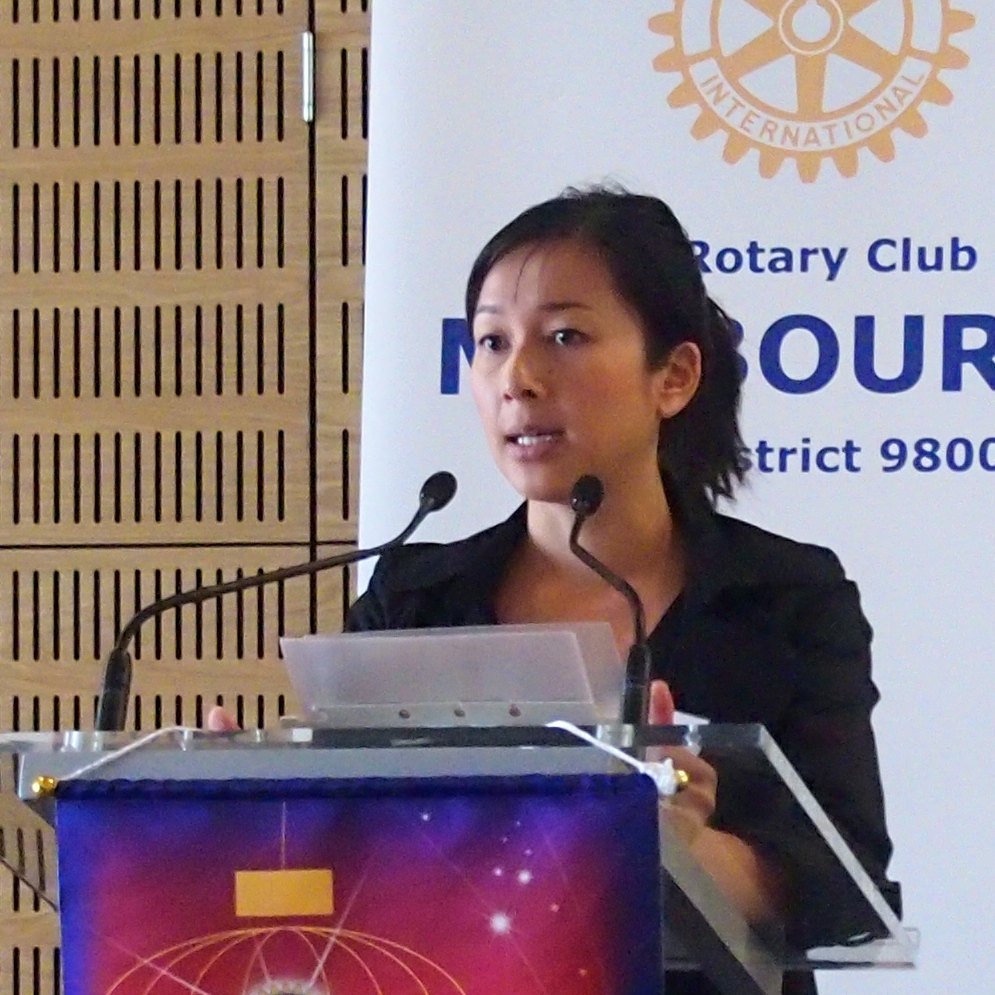|
 LUNCHEON - 12TH NOVEMBER 2014 LUNCHEON - 12TH NOVEMBER 2014
Speaker: Lien Trinh, Optometrist, Rotary Foundation Post Graduate Scholar
Topic: ‘Reflections on a year Abroad – The Master of Public Health at The London School of Hygiene and Tropical Medicine’
Chairman: Bob Fels
Lien Trinh, an optometrist, having been nominated by our Club, was awarded the newly designed Rotary Post Graduate Global Scholarship to undertake a Master of Public Health at the renowned London School of Hygiene and Tropical Medicine which she has just completed.
Lien, whose parents arrived as Vietnamese refugees, has a Bachelor of Optometry from Melbourne University and a Master of Optometry from University of NSW. She has worked in Sri Lanka, Vietnam, PNG and with indigenous communities in the Northern Territory, focusing, if you will excuse the pun, on eliminating the most common types of vision impairment and often with communities which have never had access to simple eye testing before. For her 12 months in Vietnam, she was won an Australian Youth Ambassador for Development from AusAid. She has also worked with the Fred Hollows Institute.
Truly a young woman who is committed to serving the less fortunate.
Synopsis Of The Lunch
Lien Trinh who our Club successfully nominated for the Rotary Posy Graduate Global Scholarship illustrated the benefits of her year at the London School of Hygiene and Tropical Medicine where she obtained her Master of Public Health.
The course elevated her from testing eyes to the next level of determining the causes of vision impairment so she can develop policy to tackle the causes of vision problems and reduce their incidence especially in under developed countries and amongst indigenous communities. She gave 3 case studies showing how advocacy had changed public perceptions of health issues leading to the introduction of effective policies producing better heath in the community. In the case of HIV/AIDS, drugs were developed and practices which reduced its incidence were publicised. Advocacy based on research reduced smoking and consequently smoking induced diseases. Nutritional deficiencies in indigenous communities produce eye problems, diabetes and obesity which in turn lead to even more serious health issues later in life. This is a field requiring public health policy intervention.
It was a powerfully presented presentation by Lien illustrating her capacity to marshal data and develop a case. She certainly made the most of the many opportunities that her Rotary Global Scholarship gave her, taking advantage of the mix of international students and the many renowned leaders in health policy who visited and lectured at the London School of Hygiene and Tropical Medicine.
|